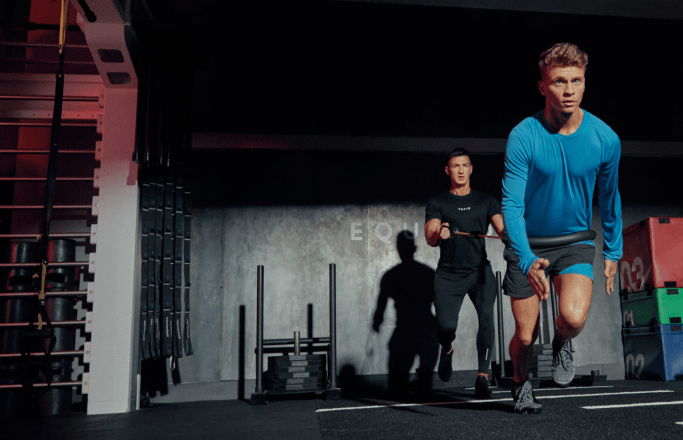

When I moved to LA I’d never heard anything about their facilities or their reputation. I didn’t have much interest in living in LA to be honest, but Missouri wasn’t exactly the Mecca of the fitness industry (laughing). This motivated me to keep learning and ask questions throughout my various jobs and my career.Īfter I’d gained some experience one of my brothers convinced me to move from Missouri to Los Angeles. I’ve always brought the mentally to my training that I should do whatever I can do to ensure my clients have the best experience. You should be taking the same type of approach to your service as someone who works in a restaurant or as a concierge does for a hotel. Many trainers don’t want to acknowledge this, but we are in the service industry. So, that was what led to me having the foundation for the type of service that is required to be a good personal trainer. I have distinct memories of selling newspapers on a corner on a Sunday morning while people drove by (laughing). Whether it was selling pretzels on a street corner or mowing lawns, I’ve always stayed busy. My family prides itself on always having a job and staying busy, so I’ve been working in some way since I was 11 or 12 years old. To give a bit of background on my approach to my career, I grew up as a landscaper.
#Equinox personal trainer how to#
From this experience I learned how to put together programs for different types of clients to meet their personal needs.

That led me to my next position at a facility where I was doing similar training with athletes, but I had the opportunity to work with general population clients as well. That on-the-job training really helped me. I’d train the athletes, learn from them, and I’d pick the brains from the trainers about the programs to see why they were organized the way they were. So, that job working at the sports facility was huge for me. You have the theoretical knowledge, but very little experience. Coming out of university then, and I’d venture it’s largely the same now, you get your certification but there’s not a big training component.

In hindsight, it was one of the best opportunities I’ve ever had because it allowed me to learn by doing. One of my first jobs was in a sports facility where my main role was to execute the programs that were written for the athletes. Matt Berenc: I’ve worked in a variety of facilities. Matt McGunagle: What were your experiences like as a young personal trainer? What led to you eventually moving into more of a managerial position? I’ve been working in or with fitness facilities for almost twenty years now. I knew I wanted to follow my passion, so I got my degree in Nutritional Science with an emphasis in Exercise Physiology from the University of Missouri. They actually sat me down and tried to convince me into pursuing a career as a physical therapist instead. At the time, in 1999 when I went to college, personal training was not seen as a viable career by many, my parents included. It was something I just viewed as being really fun, so naturally when I went to college I decided to pursue fitness as a career. At one point I even convinced a PE teacher of mine to let me bring in a barbell for our class so I could demonstrate some movements. I ended up really enjoying it and just never stopped. Either we can keep beating you up or you can start working out.’ We had a weight set in the basement at my parents house and I started working out. Around the age of ten I was chubbier than they all were and at one point they cornered me and said, ‘You have two choices. I have three older brothers and they were really physical with me when I was young. Matt Berenc: My interest in fitness was driven by my family. I like to start off our fitness industry interviews by asking what led to you first becoming interested in health and fitness? When did you know you wanted to pursue a career in the industry?

Matt McGunagle: Matt, thank you for sharing your time.


 0 kommentar(er)
0 kommentar(er)
